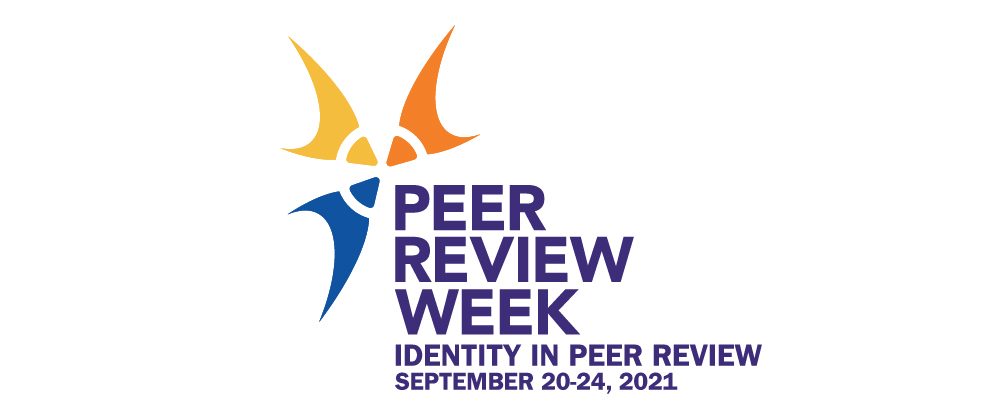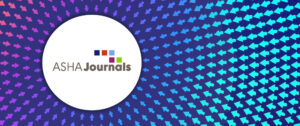The ASHA Journals are once again joining with organizations around the world in celebrating Peer Review Week (September 20–24, 2021). This year’s theme, selected through an open, global survey, is “Identity in Peer Review.” Like other organizations celebrating Peer Review Week, we’ll be focusing on the ways that cultural, personal, and professional identities intersect—and how to create a peer review process that is more committed to diversity, equity, and inclusion (DEI).
What Is Identity?
The categories in which an individual might choose to describe themselves include, but are not limited to, race, ethnicity, class, gender, sexual orientation, immigration status, parenthood, disability, age, or national origin. These markers are often intertwined, which is why it is important to have an intersectional understanding of identity and how multiple identities can interplay within one person as well as within all their interactions (i.e., with other individuals, with systems, with institutions, etc.).
People whose identities do not align with the dominant culture have historically been marginalized and continue to face systemic barriers to achievement in their studies and careers. This is true within academia, the communication sciences, and scholarly publishing—and it’s a microcosm of what is true within our broader society. We believe that only with deliberate and data-driven practices can we create an inclusive and equitable publishing environment in which people of all identities can participate and to which people of all identities can contribute their expertise.
The Role of Identity
When contributing to any academic journal, the traditional expectation was that one would “check their identity at the door” in order to provide an unbiased, honest review. However, as our industry’s understanding of the role of race, culture, gender, and other factors grows, it has become clear that not only is it impossible to ignore the role that identity plays in our lives, but it’s also detrimental to the peer review process.
“Not only are we celebrating peer review this year but we are also exploring how the distinct identities of the multiple stakeholders involved in it bring in added layers of diversity, expectations, perspectives, experience, knowledge, and skill,” writes Peer Review Week Co-Chair Jayashree Rajagopalan. Indeed, by embracing contributors’ diverse backgrounds, we will not only help tackle the inequities in publishing, we will also gain new insights into the perspectives offered by the articles that we publish.
Encouraging authors, reviewers, and editors to consider their own identities and how their past experiences may limit or enrich their perspectives is an important first step before evaluating a manuscript. This self-knowledge and cultural humility will lead to improved communication and feedback, which will in turn further strengthen the science that we publish. Cultural competence is a critical piece of the peer review process that ensures that our journals are publishing responsible science that serves all of our communities.
Identity in the ASHA Journals
One of the primary threats to a diverse peer review process is homophily—defined by Oxford Languages as “the tendency for people to seek out or be attracted to those who are similar to themselves.” For example, an editor—tasked with finding appropriate reviewers for a manuscript in their field—might be tempted to default to inviting scholars in their social circles, past collaborators, or well-known figures in their field. Because people with similar backgrounds tend to cluster together, the practice (whether conscious or not) of homophily may have the unintended effect of homogenizing the reviewer pool with an over-reliance on a small group of gatekeepers. At the same time, early-career scholars, who tend to be more diverse, are rarely tapped to review.
To combat this effect, we train and actively encourage editors to use various tools to search for reviewers by subject area. Within the Editorial Manager® digital submission system that the ASHA Journals program uses, all users are given the opportunity to indicate their areas of expertise via personal classifications and keywords. Editors are asked to use these classifications to match reviewers to manuscripts.
Post-Publication Name Changes
We also recognize that an individual’s identity is always evolving. In particular, many transgender scholars face barriers to professional recognition and mobility after undergoing a name change. To that end, we’ve made it easier than ever for authors to update their name on previous publications by the ASHA Journals. We do not require a specific reason or validation of a legal name change with the request.
The ASHA Journals and Peer Review Week
Peer Review Week is an annual global event focusing on emphasizing and showcasing the role of peer review in scholarly publishing. You can check out links to our coverage of previous Peer Review Weeks below!
2018: Diversity in Peer Review and Four Easy Tips for Early-Career Researchers Interested in Peer Review
2019: Quality in Peer Review
2020: Trust in Peer Review









